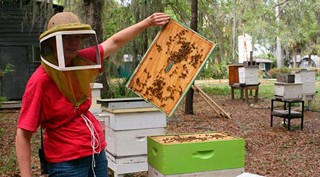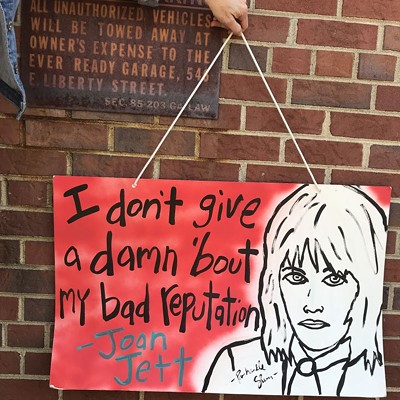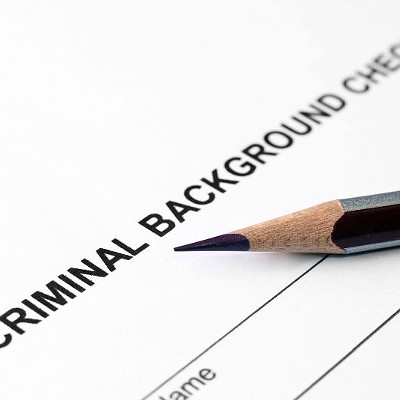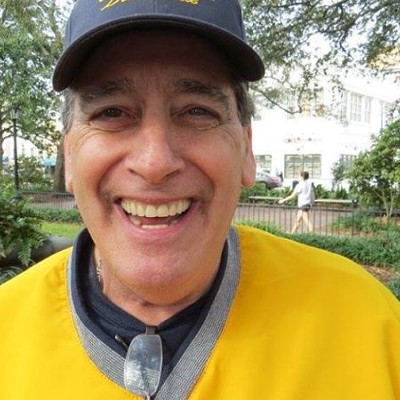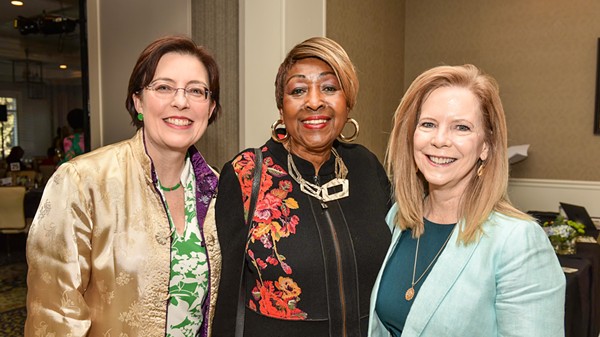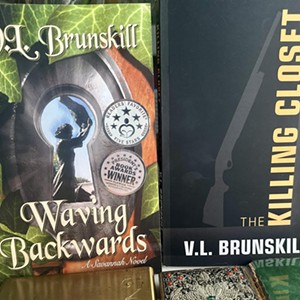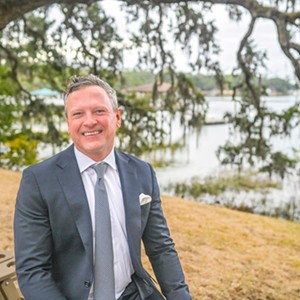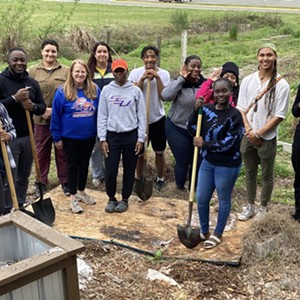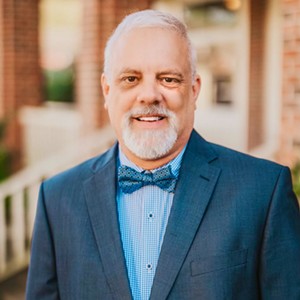Some people compulsively collect old books. Others keep rooms full of iguanas or gerbils. There are the expired food freaks and those obsessed with velvet Elvis paintings.
Me, I’m a honey hoarder.
A peek into my pantry reveals rows of plastic bears, lined up like amber soldiers ready to fulfill a mission. On the shelf above stand several gallon jugs, reinforcements if supplies ever run low.
If Armageddon hits and Savannah starts resembling Panem’s District 12, people will be begging me for a little squirt to liven up their stale granola.
Honey does more than sweeten my morning tea: I swear a spoonful a day helps keep the pollen allergies away, and its antifungal and antibacterial properties are put to use in clinical wound care.
Local honey brings the most benefits, and I’m partial to the liquid gold sold by Read Nichols at the Forsyth Farmers Market, made by bees drinking a nectar cocktail of oak spores and jasmine flowers on good ol’ Wilmington Island.
But let me tell you, honey is an expensive habit. In the past, when I’ve formed a wicked dependency on a substance, I’ve found a way to create my own supply.
Lest you think I’m cooking meth in the garage, let it be known that I’m actually referring to fresh eggs and kale: My jones for these instigated the construction of raised garden beds and a coopful of hens in our midtown backyard.
So why not add our own honey hive to our miniature urban farm?
For a rundown of the basics, I paid a visit to Oatland Island Wildlife Center, where science teacher Annie Quinting oversees an apiary (that’s beespeak for a neighborhood of bees) tucked back under the oak trees.
Though she’s been keeping bees for ten years, Quinting calls it “an ever–learning process.” She had just introduced a new queen to a group of stacked boxes and invited me to have a look, handing me a wide–brimmed hat with a netted veil, which might be rather glamorous if it came in black.
Using a smoker to subdue the buzzing residents, Quinting lifted the lid to reveal an enviable world where females outnumber the males 200 to one and everyone pitches in to fill the pantry for winter. The shimmer of tens of thousands of busy striped bodies was mesmerizing.
With some guilt I realized I’ve been voraciously slurping the sweet product of their toil without fully appreciating the workers (there is a parallel to explore here about Old Navy T–shirts and Indonesian slave labor, but that is a subject for another column.)
Back to business: How do you collect the honey? Quinting raised an eyebrow. “Very carefully.”
Quinting reminded me that honey is merely a by–product of a delicate and symbiotic relationship between these industrious pollinators and what blooms around us.
They’re the foundation of our food supply, and we bemoaned the frightening phenomenon of colony collapse disorder, which has killed off almost half of the wild bee population in the last five years (and is what spawned my hoarding tendencies in the first place.)
Pesticides, mono–species agriculture and the creepy Veroa mite have all been blamed, but whatever the culprit, fewer bees mean less crops, and staving off their demise is fast approaching a worldwide emergency.
Even the government knows the world needs more bees: the USDA recently launched a national database to connect backyard beekeepers, and Virginia just passed a $200 tax credit to encourage folks to try their hand at cultivating colonies.
Finally, a trendy hipster endeavor that might actually save the world!
I had already mentally mapped out a spot near the compost heap where I would tend my bees wearing my fabulous Greta Garbo black veil when I remembered a little tidbit from the Savannah City Code, section 9–5012: “That no person shall establish, possess or maintain any hive or swarm of bees for any purpose whatsoever other than as expressly provided herein.”
Hmm. As of now, unincorporated parts of Chatham County can have their bees, but us urban aggie nerds living in the city proper are out of luck.
Of course, we can have our five chickens, and the county peeps can’t. But all that may change very soon:
After the ruckus over Paula Deen’s illegal chickens last summer, the Metropolitan Planning Commission put together the Task Force on Animal Control Ordinances to hammer out some recommendations that would make the city and county friendlier to urban agriculture.
The task force includes Coastal Empire Beekeepers Association president Greg Stewart and is chaired by Dr. Blake Caldwell, who probably thought she was off the hook for long meetings when she retired from drafting national health policy for the Center for Disease Control.
Dr. Caldwell wouldn’t speculate on what will actually end up on the books, but it’s likely Savannah residents will be allowed to keep bees via a registration process.
Regulation will probably be necessary as well, because if everyone on the block decides to install hives in their backyard, we’ll all need a Garbo hat just to take out the trash.
“We’ve drafted what we feel is a reasonable ordinance, but who knows how it will come out?” she pondered.
No word on when those recommendations will reach the city’s agenda so my pocket–sized farm remains honey–less for now.
But no need to panic, my stash can probably last me through 2025. After that, it might get sticky.
Interested in beekeeping? The Coastal Empire Beekeepers Association meets the second Monday of every month; next one is April 9. For more info, go to cebeekeeping.com

